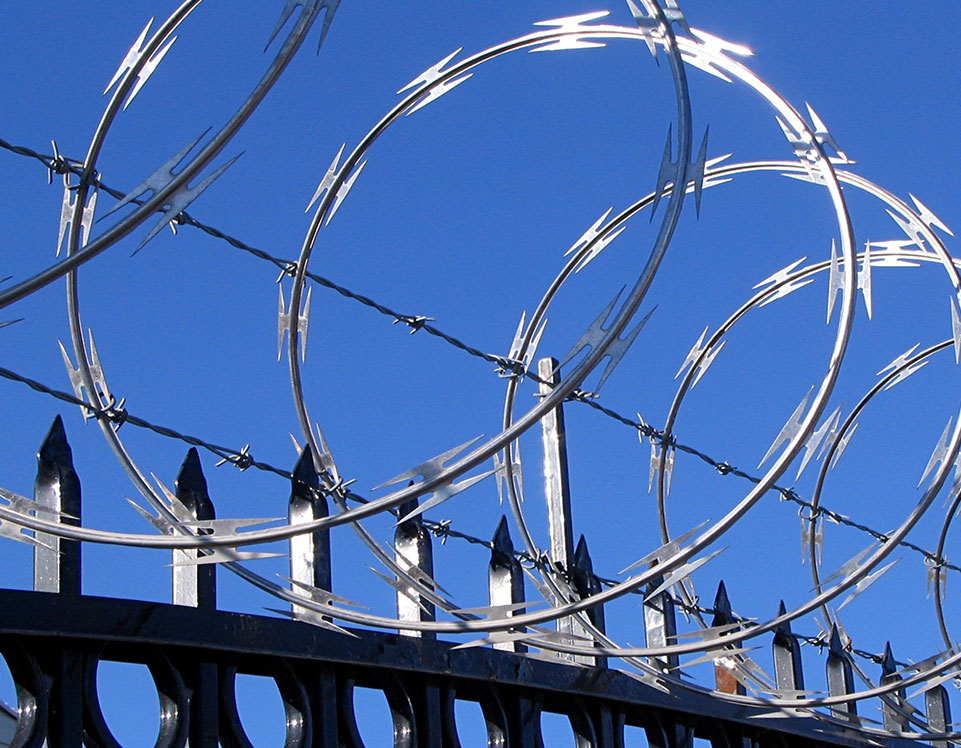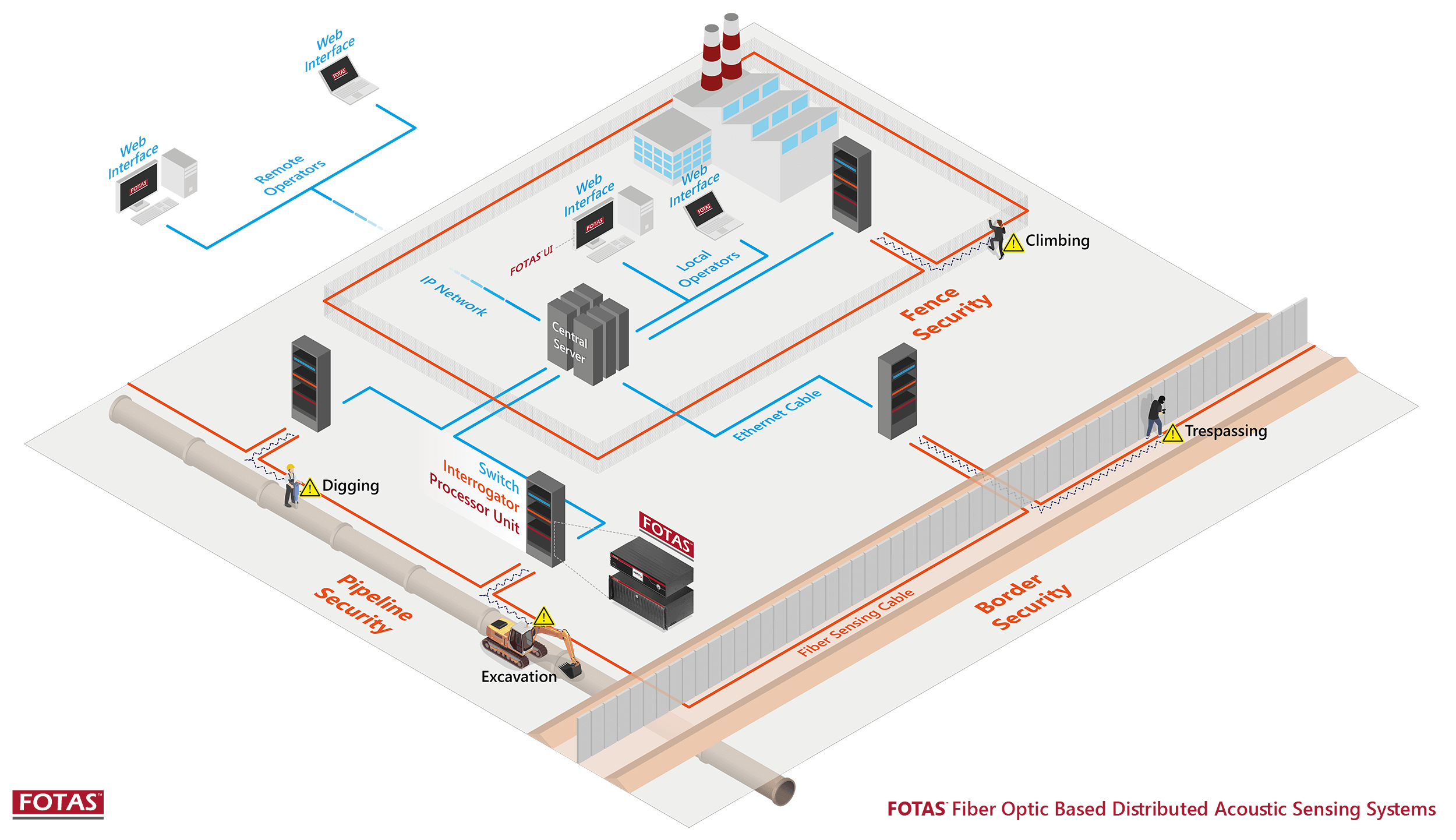Secure Your Building With Reputable Fiber Optic Security Solutions
In an age where security dangers are increasingly advanced, the need for efficient defense services is paramount. Fiber optic safety systems stand out by using remarkable integrity and performance, leveraging sophisticated light transmission technology to improve security abilities. These systems not just provide resistance to electromagnetic interference yet also guarantee long-term expense efficiency with reduced maintenance needs. However, the decision to spend in such an option involves mindful consideration of different factors. Understanding the complexities of fiber optic protection can brighten the path to guarding your property a lot more effectively. What facets should be checked out to optimize your investment?
Advantages of Fiber Optic Protection
Fiber optic safety services provide a range of benefits that make them progressively important in today's electronic landscape. Among the most substantial advantages is their exceptional data transfer capability, which enables the transmission of huge amounts of data over lengthy distances without substantial signal deterioration. This capability is specifically beneficial for security systems that rely upon high-definition video clip monitoring and real-time monitoring.
Furthermore, fiber optic cables are naturally much more safe and secure than conventional copper circuitry. They are immune to electro-magnetic interference, making them much less vulnerable to hacking or eavesdropping. This boosted safety and security is critical for securing delicate data and keeping the integrity of monitoring systems.
Furthermore, fiber optics are extra resilient and immune to environmental aspects, such as moisture and temperature level fluctuations, guaranteeing lasting reliability and lowered maintenance expenses. The light-weight nature of fiber optic cable televisions likewise streamlines installation processes, permitting greater versatility in system design.
Just How Fiber Optic Systems Work
In modern safety and security applications, the operation of fiber optic systems counts on the concepts of light transmission through flexible glass or plastic fibers. These fibers are designed to lug light signals over lengthy ranges with very little loss, making them optimal for transferring data associated with protection surveillance. The core of the fiber, bordered by a cladding material, ensures that light signals continue to be had within the core with a phenomenon referred to as total inner reflection.
When integrated right into safety systems, fiber optic cable televisions can transmit information from different sensors, such as electronic cameras, movement detectors, and alarms, to a main tracking station. The high data transfer capacity of optical fiber permits the transmission of large quantities of data all at once, allowing real-time surveillance and punctual reaction to possible dangers.

Kinds of Fiber Optic Safety Solutions
Various kinds of fiber optic safety and security remedies have arised to improve security and security throughout different settings. One popular remedy is fiber optic boundary breach detection systems (PIDS), designed to keep an eye on and protect residential property boundaries via the detection of resonances and disruptions along fiber optic cable televisions. These systems give real-time alerts, allowing punctual feedbacks to unauthorized accessibility attempts.
One more reliable solution is fiber optic video monitoring. This modern technology leverages high-definition cams attached via fiber optic cable televisions to transfer video clip information over long distances without considerable loss of high quality. This arrangement is particularly advantageous in extensive locations, such as airport terminals and commercial sites, where traditional copper cable televisions may fail.
Furthermore, fiber optic sensing units are significantly made use of for environmental monitoring, discovering modifications in temperature level, stress, or acoustic signals that might suggest safety violations or unsafe problems. These sensing units use high level of sensitivity and precision, making them suitable for essential infrastructure defense.

Installation and Maintenance Tips
Effective installment and upkeep of fiber optic safety and security remedies are important for ensuring their optimal efficiency and long life. Fiber optic cords must be transmitted safely, preventing sharp bends or twists that could compromise their integrity.
Throughout installment, it is a good idea to perform thorough screening of the system to confirm that all elements are working correctly. Regular maintenance checks should be scheduled to inspect the fiber optic wires for any indicators of wear or damage, along with to guarantee that links remain safe. Cleaning the ports occasionally is likewise essential to stop signal loss as a result of dust or debris.
In addition, keeping an upgraded supply of installed elements and their requirements can help with much easier troubleshooting and upgrades. By sticking to these installation and upkeep pointers, residential property proprietors can take full advantage of the performance of their fiber optic security options, making certain a dependable defense versus possible threats.
Comparing Expenses and Efficiency
When reviewing fiber optic security solutions, understanding the balance between expenses and performance comes to be extremely important (security fibers). Organizations must consider the upfront investment, continuous maintenance expenses, and the long-lasting value these systems offer. While fiber optic systems may need a greater preliminary setup expense contrasted to standard copper electrical wiring, their longevity and lowered susceptibility to electromagnetic interference frequently translate to lower upkeep prices with time
Performance is an additional essential aspect; fiber optic safety systems use improved data transmission speeds and boosted integrity. They can cover larger ranges without signal deterioration, making them perfect for find this expansive residential properties or remote places. Additionally, the high bandwidth ability sustains advanced security applications, such as high-def video surveillance and real-time surveillance, which are necessary for extensive security monitoring.
Eventually, the choice in between cost and performance ought to be guided by certain security requirements and risk evaluations. Organizations must examine their unique demands, considering aspects like residential or commercial property dimension, safety and security dangers, and technological improvements. By performing an extensive cost-benefit evaluation, stakeholders can make educated choices that discover this info here align with their safety purposes while ensuring a sound financial investment in fiber optic technology.
Final Thought
In conclusion, fiber optic safety and security services provide considerable advantages in terms of efficiency, dependability, and resistance to environmental interferences. Eventually, the adoption of fiber optic innovation represents a forward-thinking approach to safeguarding properties against evolving security hazards.
Comments on “The Advantages of a Fiber Optic Security System: Why It’s the Next Step of Secure Systems”